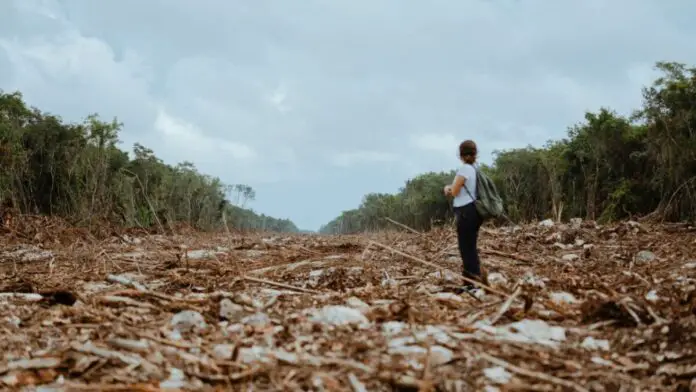A devastating report has emerged on the environmental impact of Mexico’s Mayan Train project, which is set to destroy up to 20,236 square kilometers of natural cover in southeastern Mexico. This represents a staggering 40% of Quintana Roo’s total territory, according to a study conducted by researchers from the National Autonomous University of Mexico (UNAM).
The data, which forms part of an injunction filed in 2019, paints a dire picture of the project’s environmental consequences. The total loss of natural cover across the entire peninsular region of Campeche, Yucatán, and Quintana Roo could reach two million hectares – almost 13 times the size of Mexico City.
The analysis also reveals that the territory’s carbon capture capacity will be significantly reduced from 72% to 53%. This is a worrying trend, especially considering the project’s projected growth in activities such as agriculture, livestock, and urbanization.
Agricultural land area is set to increase by 64%, or 1,011,018 additional hectares – equivalent to 20.5 times the size of Cozumel. Meanwhile, livestock cover will grow by 37%, with an additional 978,885 hectares – roughly 2.45 times the size of Tlaxcala.
Despite presenting these technical studies for several years, the Ministry of Environment and Natural Resources (Semarnat) has requested extensions to respond. The constitutional hearing for the amparo trial is scheduled for June 4 this year.
Viridiana Maldonado, co-coordinator of Diverse Territories for Life, emphasizes that “the definitive cancellation of the Maya Train project, the cessation of activities that exacerbate environmental destruction, and the urgent implementation of ecological restoration and mitigation measures are required.”
The Mayan Train’s projected impact serves as a stark reminder of the importance of prioritizing environmental sustainability. The consequences of this project will be felt for generations to come, making it imperative that authorities take immediate action to mitigate its effects.
Source: 24 Horas




